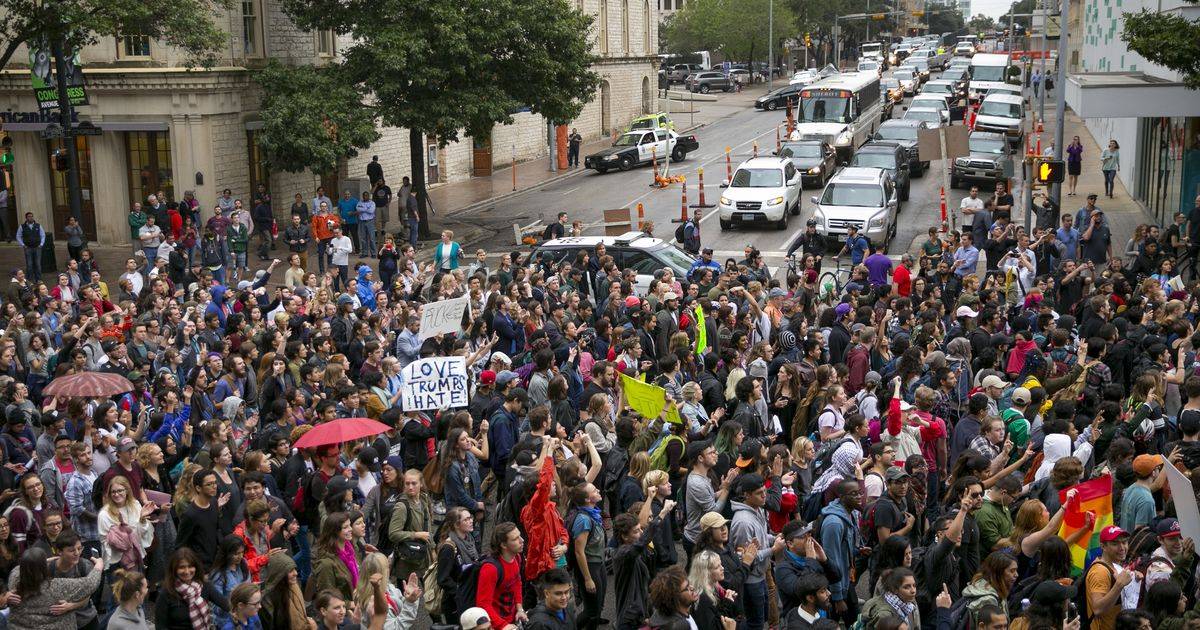
When I was in high school in the Philadelphia suburbs, one of my close friends used to repeatedly rant that as a white man, he didn’t have any rights in this country.
That was in 1994, just before the “angry white man” vote swept Republicans into a Congressional majority that they have largely held for the better part of the past 22 years. I was reminded of that conversation when I woke up last Wednesday and watched the rain fall heavily in our D.C. neighborhood.
Political experts and activists from both the Republican and Democratic parties have been analyzing the election results, and there are some obvious explanations about polling data, the consolidation of the white working and middle class vote by Donald J. Trump and the GOP against Hillary Clinton’s “coalition of the ascendant;” and pontifications about whether Clinton was the right choice to inherit President Obama’s legacy. Indeed, activists have already started mass protests, and social media hashtags like #notmypresident have become go-to venting points for Americans genuinely shocked, dismayed, or packing for Canada.
But the reality is that Trump voters didn’t just exist in the backwoods or in some dying manufacturing town. They lived in plain sight, often begging us to see them. Many Trump voters likely didn’t agree with his framing of America as a dystopia in decline, but they were not ready to accept cultural and social changes that many felt were being imposed upon them.
Too often, we talk about how the right has created an alternate reality where like-minded people can rage against multiculturalism, unleash their basest racist, homophobic, and sexist thoughts, and long for an (white) America in their imagination. But the left is getting as active in the sport of building alternate realities, and in a zeal to embrace a changing America, they are starting to cocoon themselves (in the form of “safe spaces”) from ideas and people they disagree with. Empathy, one of the qualities that so many of us who identify as liberal view as a bedrock of our political beliefs, should not be selective and extended only to those we agree with.
Those “other” Americans who are now credited (or blamed) for voting in Mr. Trump are our colleagues; the people we go to for servicing our cars; the customer service representatives we call for help with a travel booking; and even our neighbors who just avoid the topic of politics because they’re tired of their conservative views being conflated with racism and sexism. In our rush to redefine ourselves as an innovative and educated society, we unconsciously trample over those being left behind economically and socially by rapid change, or are ideologically different from “us.”
When I was a journalist, I used to always talk to the administrative assistants of the political officials I covered. They were always happy to talk to me because they often felt slighted, disrespected, and talked down to by their bosses. It made for great off the record gossip, but those feelings have also translated into political resentment. Trump masterfully captured that resentment, and liberals are left stunned at how they and Clinton could be seen as out of touch. And it’s beyond left and right: a good portion of those people would have gladly voted for Bernie Sanders because he spoke to their frustrations and anxieties about an America that was leaving them behind.
Maybe in our desire to analyze what went wrong, to wonder how many of those Trump voters were driven by pure racism, xenophobia, and sexism (because a lot of them probably were), or rush to grab our protest signs, maybe we should stop and consider talking to them. I’ve often heard from folks who say they can’t have conversations with certain family members because they’re conservatives and close-minded, and I wonder if we become just as close-minded when we wall ourselves off from the ideas that we deem offensive.
Perhaps Trump is the exact antidote to our desire to run away from dialogue and disagreement. The dawn of his presidency will force those of us who were (and are) repulsed by Trump’s candidacy and the sentiments he unleashed to take a long and hard look at how we communicate our own ideas. Trying to argue intersectionality to an African American construction worker, or running into an all-white working class diner in Jackson, Michigan screaming “Check your privilege” probably aren’t effective tools in that effort. Mobilizing large groups of people requires actually know who they are, what makes them get up in the morning and what keeps them up at night.
Maybe we should sit down and listen because we and the people we disagree with are far more nuanced than we give them (and ourselves) credit for. I’ve known racists, anti-Semites, homophobes, Islamophobes and other “deplorables,” and they’re a lot more complex than we depict them to be, and they have the capacity to change. That same friend who ranted about having no rights as a white man called me on the eve of the election and texted me the day after, apoplectic about racism and exasperated over his fellow white Americans not acknowledging their privilege. It was a conversation I never imagined having with him two decades ago.
I look forward to more conversations I can’t imagine having right now.









































